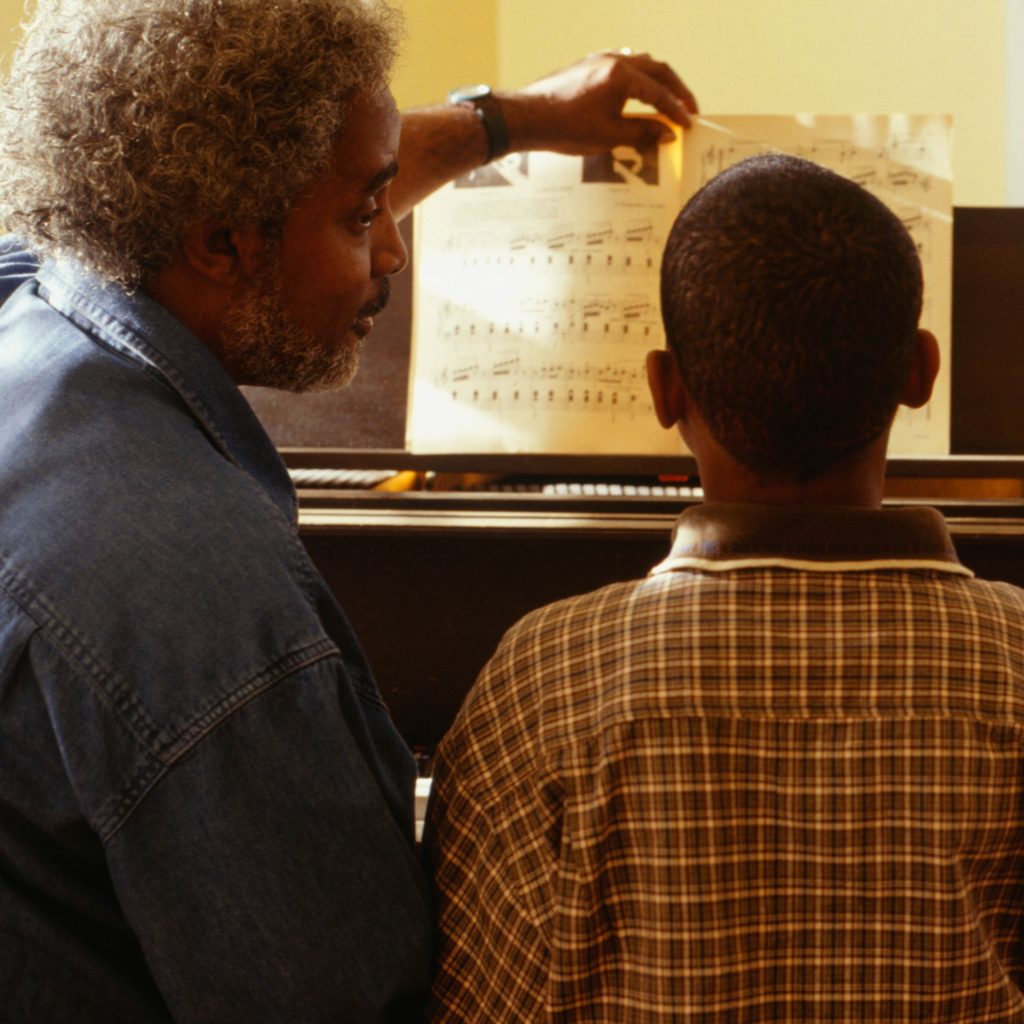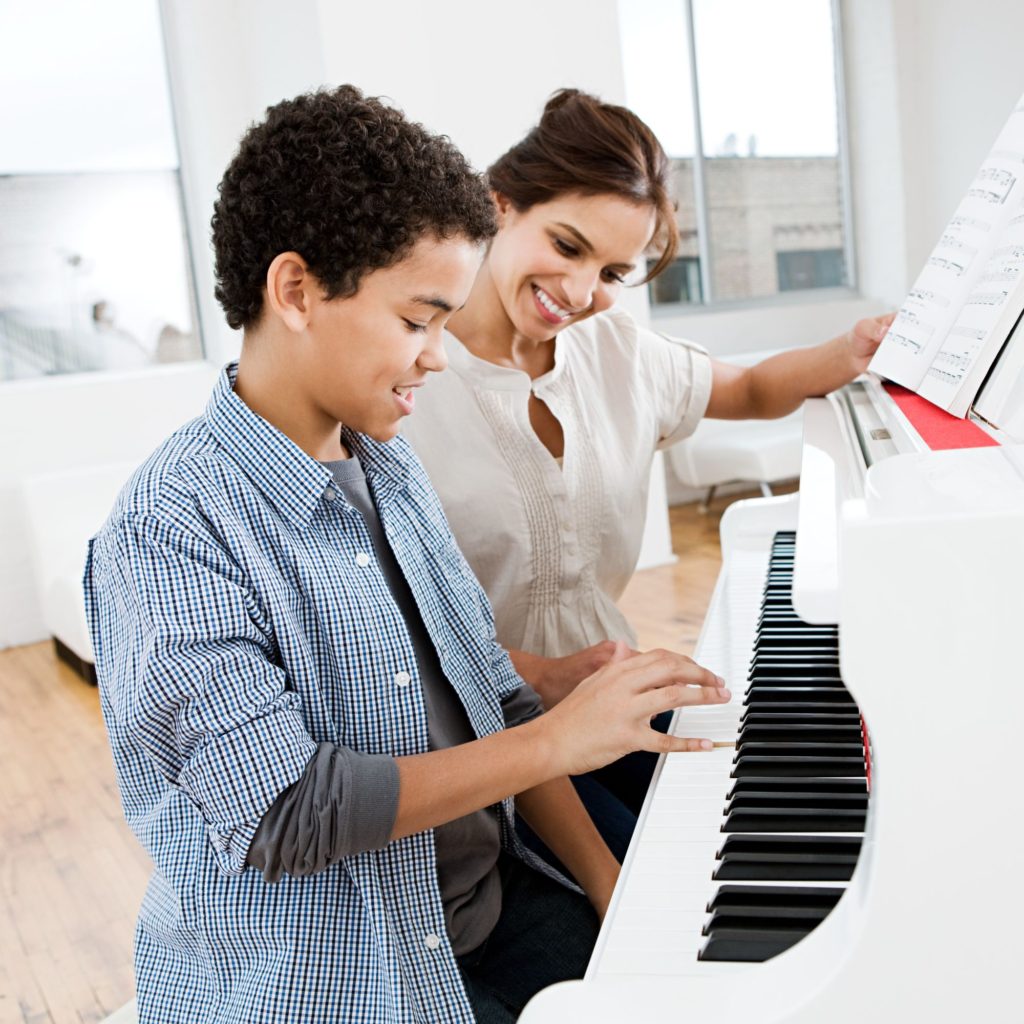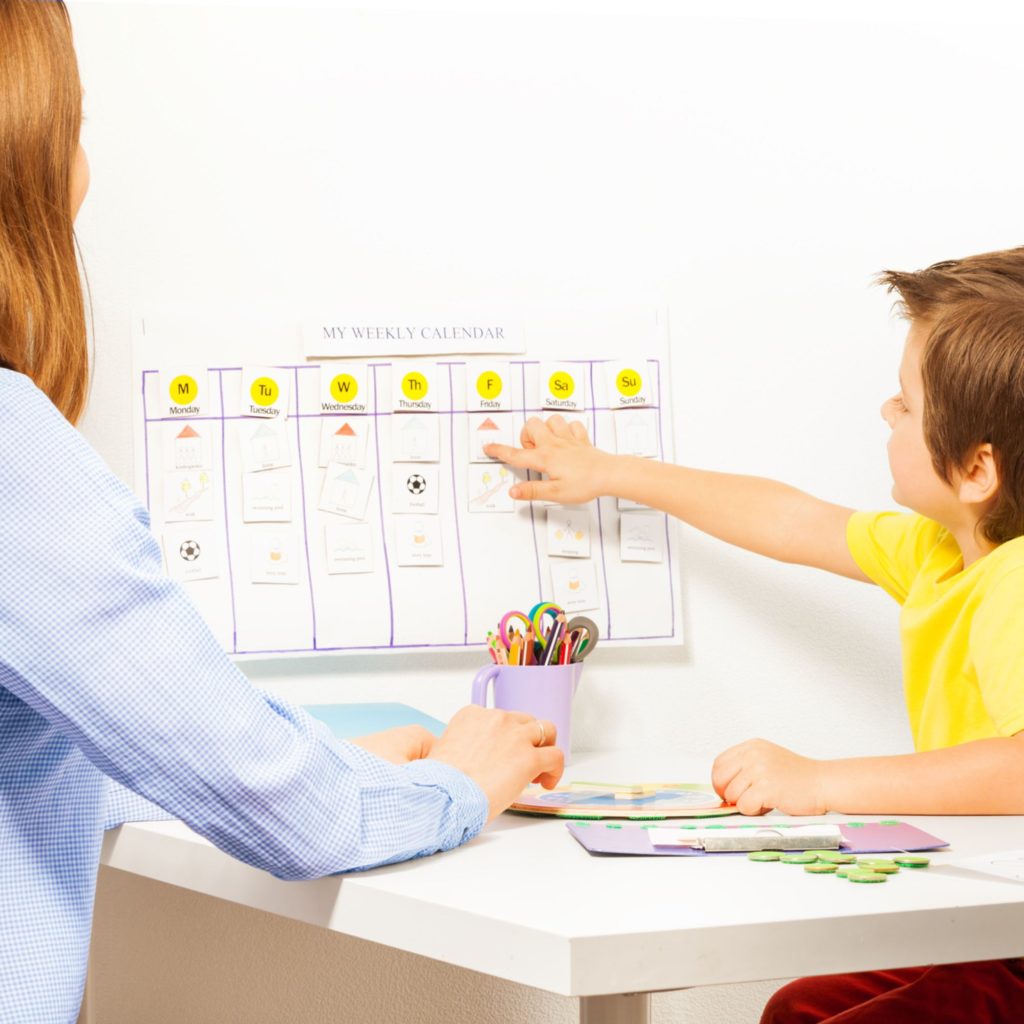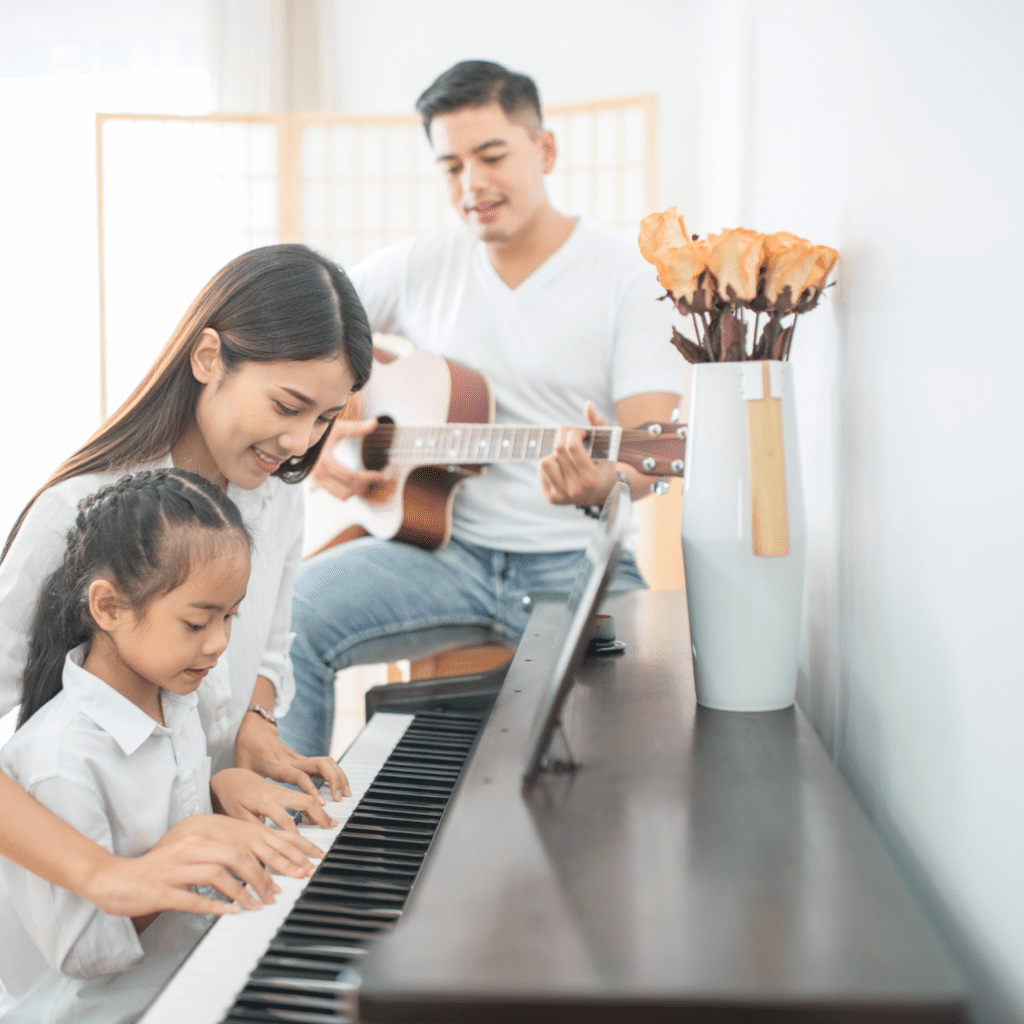Music for Everyone
What We Do
We specialize in teaching group, virtual, and private piano lessons for beginning to advanced level piano students in diverse genres of music, including Classical, Jazz,
Pop, Rock, and Gospel. We also encourage a focus on music theory and composition.
Benefits of Music Instruction
There are many ways in which our students can benefit from piano lessons, or other musical instruction:
- Responsibility – practicing takes dedication and a set amount of time each day at the piano (20-30 minutes daily to start)
- Improve motor skills and establish hand/eye coordination
- Appreciation for the arts
- Historical instruction – learning about the eras in which certain composers lived
- Mathematical skills – fractions, counting – for example, learning how much time to give to full, half and quarter notes
Reviews
forward to every lesson! Nicole does a great job of teaching classical music while incorporating Disney songs. Her
lessons are filled with games and fun.
With more than 18 years of experience, 88 Keys of Miami enjoys working with a wide range of students.
Whether you’re a complete beginner who’s never touched a keyboard before, or you have learned it years ago and want to refresh your memory, or you’re an intermediate piano player who wants to learn further, I’m here to teach you whatever you need to learn to play pieces, read notes and scales, and know more about music theory. Please reach out to me now so we can begin our assessment and schedule an appointment soon to discover the wondrous world of playing the piano!
How to Be A Supportive Parent of a Piano Student




Encourage Your Child As Much As Possible!
Avoid Negative Criticism.
Make Sure Your Child Knows That You Consider Music a Serious Commitment.
Provide As Much Cultural Enrichment As Possible.
Be sure to praise effort as well as accomplishment. Even if your child does not learn as fast as another, in the long run, hard work will determine the final result. There is no better way to bring about the hard work than to reward the effort. Try to express interest in what your child is doing, even if you are getting tired of hearing “Chopsticks”. Encourage your child in every way possible to perform for family and friends in relaxed settings.
Most of us respond better to thoughtful, loving help than undirected criticism. If your child seems uncooperative, it may mean that they need more help, encouragement, and support. Punishment is usually not a long-term solution. Be active in your child’s practice time and repertoire. Dedicate a particular space, a special time, and a specific amount of time to practice every day. Practice makes progress!
Schedule piano practice time for your child just as regularly as you do Little League or soccer practice. See to it that practice sessions are as free as possible from distractions. If the piano is in the living room, try to limit access to the living room during your child’s allotted practice time. If your child has not practiced for some reason, do not cancel lessons. If you find the child’s interest in lessons decreasing+, the best thing to do it to discuss the problem with your child’s teacher; often, this can be solved with proper stimulation and supervision by you and the teacher working together.
The experience of listening to music without the pressure of having to play the notes correctly can add greatly to your child’s appreciation for music generally and lessons in particular. Go to concerts with your children whenever possible. Introduce your children to the works of the masters by playing the music in your home. These days, computer technology, has made it possible to explore great music in a way that is fun for the entire family.

Encourage Your Child As Much As Possible!
Be sure to praise effort as well as accomplishment. Even if your child does not learn as fast as another, in the long run, hard work will determine the final result. There is no better way to bring about the hard work than to reward the effort. Try to express interest in what your child is doing, even if you are getting tired of hearing “Chopsticks”. Encourage your child in every way possible to perform for family and friends in relaxed settings.

Avoid Negative Criticism.
Most of us respond better to thoughtful, loving help than undirected criticism. If your child seems uncooperative, it may mean that they need more help, encouragement, and support. Punishment is usually not a long-term solution. Be active in your child’s practice time and repertoire. Dedicate a particular space, a special time, and a specific amount of time to practice every day. Practice makes progress!

Make Sure Your Child Knows That You Consider Music a Serious Commitment.
Schedule piano practice time for your child just as regularly as you do Little League or soccer practice. See to it that practice sessions are as free as possible from distractions. If the piano is in the living room, try to limit access to the living room during your child’s allotted practice time. If your child has not practiced for some reason, do not cancel lessons. If you find the child’s interest in lessons decreasing+, the best thing to do it to discuss the problem with your child’s teacher; often, this can be solved with proper stimulation and supervision by you and the teacher working together.

Provide As Much Cultural Enrichment As Possible.
The experience of listening to music without the pressure of having to play the notes correctly can add greatly to your child’s appreciation for music generally and lessons in particular. Go to concerts with your children whenever possible. Introduce your children to the works of the masters by playing the music in your home. These days, computer technology, has made it possible to explore great music in a way that is fun for the entire family.
